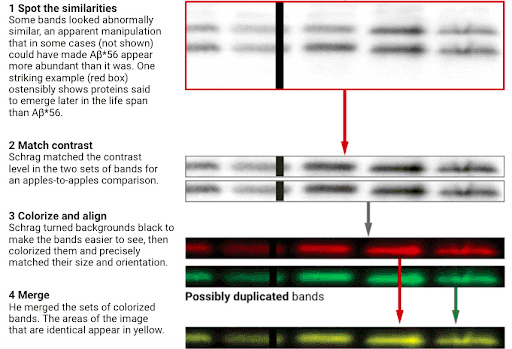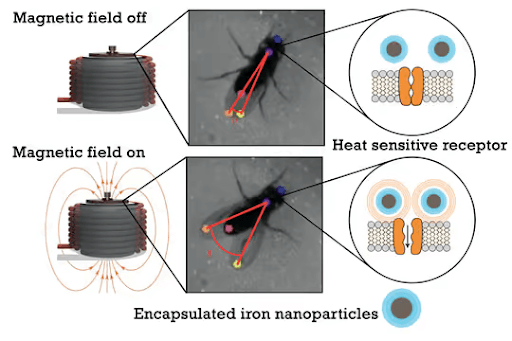Neuroscientist exposes potential Alzheimer’s fraud

Image: Science
Dozens of papers involving Alzheimer's research – including one of the field’s most-cited studies from 2006 – may have been fraudulent, per a new Science article published following an investigation by neuroscientist and physician Dr. Matthew Schrag of Vanderbilt University.
His probe examined research into Simufilam, the leading Alzheimer’s drug produced by pharma company Cassava Sciences. It’s projected to reach $550+ million in sales by the end of the decade.
📚 Here’s how it went down… Last August, Schrag said he was contacted by a lawyer representing "two prominent neuroscientists'' who believed some research related to Simufilam may have been fraudulent. (Full disclosure: the two are also short sellers who stand to profit if Cassava Sciences’ stock falls.)
- After looking at images published in articles related to Simufilam, Schrag identified "apparently altered or duplicated images in dozens of journal articles," per Science.
- The scientific journal then asked two independent image analysts to review the findings. Both concurred with Schrag, or found his conclusions “compelling and sound.”
✋ Yes, but: Schrag doesn't use the word "fraud" or claim to have proven misconduct, as such an assessment would "require access to original, complete and unpublished images and in some cases raw numerical data," Science reports.
📝 Bottom line: If true, Schrag’s research would imply that potentially billions of dollars in federal grants – and countless lab hours – may have been misspent on Alzheimer's research and other efforts based around the fabricated findings over the past 16 years. Gulp.
Share this!
Recent Science & Emerging Tech stories

Science & Emerging Tech
| July 25, 2022The monkeypox emergency declaration, explained
🦠📣 The WHO declared the monkeypox outbreak to be a public health emergency of international concern on Saturday, its first time using the designation since the start of the Covid pandemic.

Science & Emerging Tech
| July 22, 2022Puttin’ in that (brain)work
🧠 Physical and mental activity may help preserve cognitive ability and delay dementia, according to a new peer-reviewed study published in the medical journal Neurology.

Science & Emerging Tech
| July 21, 2022The Scientists Who Stare at Flies
🧠🦟 Researchers at Rice University successfully hacked the brains of fruit flies to make them remote-controlled, according to a new peer-reviewed study published in Nature Materials.
You've made it this far...
Let's make our relationship official, no 💍 or elaborate proposal required. Learn and stay entertained, for free.👇
All of our news is 100% free and you can unsubscribe anytime; the quiz takes ~10 seconds to complete